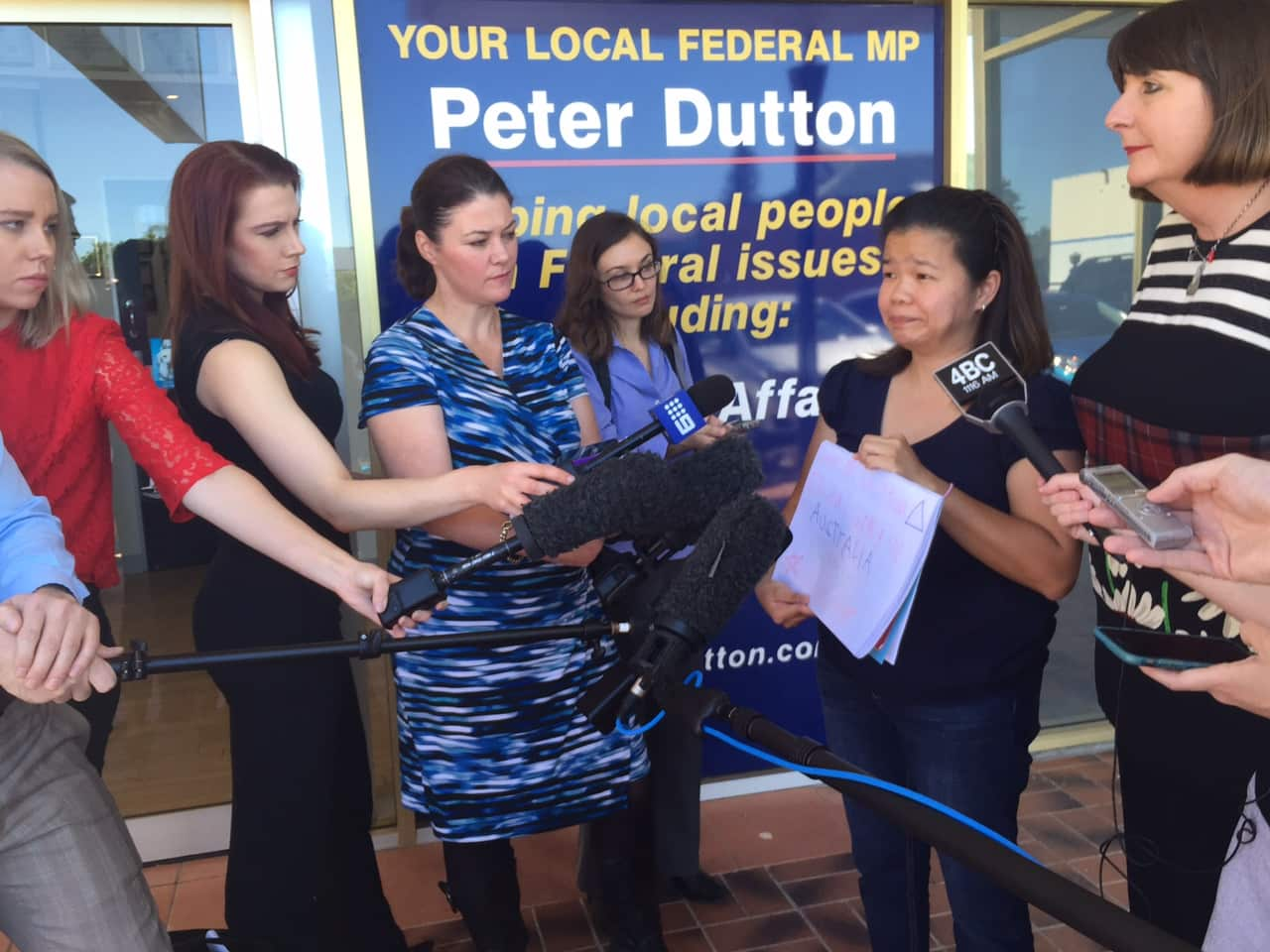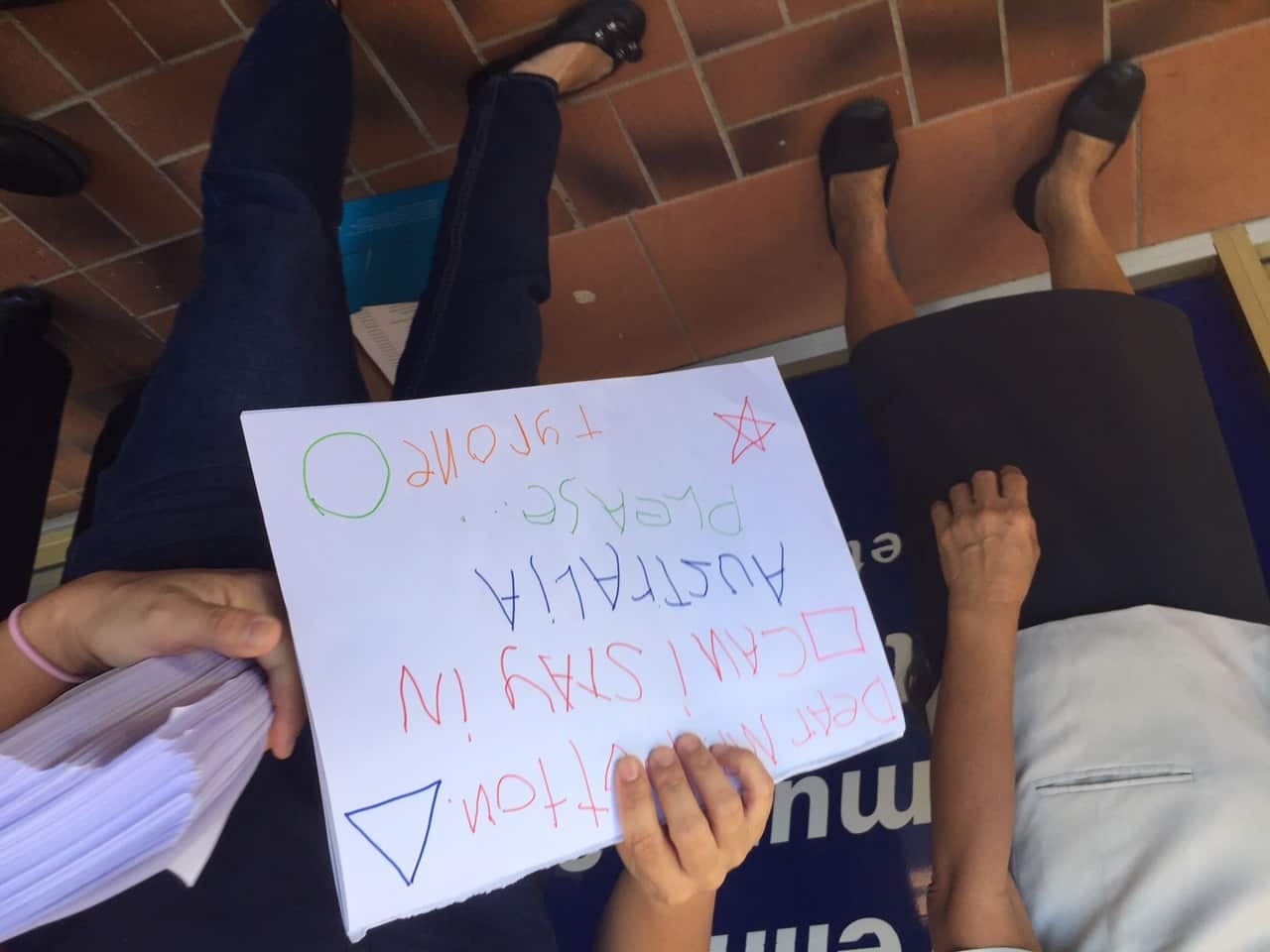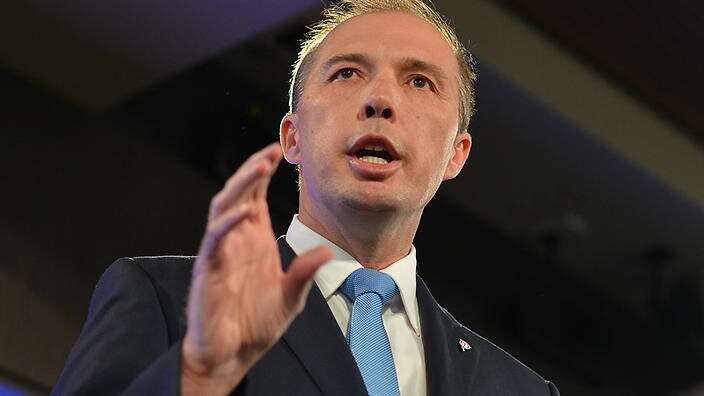The immigration minister has indicated he might be willing to let a 10-year-old autistic boy at risk of deportation remain in Australia.
The family of a 10-year-old autistic boy facing deportation has delivered a petition with 122,000 signatures to the federal Immigration minister, pleading to be allowed to stay.
"... on the details, as they are made known to me at the moment, I think this is a case where we would be able to help the family," Mr Dutton told ABC Radio.
Filipino nurse Maria Sevilla’s application for a three-year Skilled Provisional Work visa was rejected last September because of her son Tyrone’s medical condition

The department deemed he would be a “significant cost” to Australian taxpayers.
The 4,000-page petition was hand delivered by Ms Sevilla, her mother and Tyrone to Mr Dutton’s electoral office in Strathpine, north of Brisbane.
"It is very overwhelming, we're really lucky to have all this support in my hands,” Ms Sevilla said.
She arrived in Australia with her son in 2007 on an education visa and is now a registered nurse working at Townsville hospital, pays tax and has private health insurance.
She says her son is not receiving any federal support to treat his autism.
Tyrone also wrote a note to the immigration minister saying, “Dear Mr Dutton, Can i (sic) stay in Australia please… Tyrone".

Ms Sevilla’s bridging visa is due to expire a midnight tonight.
Mr Dutton told ABC Radio a new bridging visa would be issued to Ms Sevilla while the department reconsidered her case.
"They under the law have to look at whether or not accepting people in that circumstance would displace Australian children from the programs being provided from state and territory governments, as well as a Commonwealth government. That's the law they have to operate under,” Mr Dutton said.
"There's a bridging visa that's put in place until I can consider the application and then, as I say, hopefully we get a common sense outcome," he said.
Under the Immigration Act, Mr Dutton has ministerial discretionary power to overrule the department.
The Queensland Nurses Union (QNU) is supporting Ms Sevilla’s efforts to remain in Australia.
“Maria can’t work right now because she hasn’t got a visa, so having the bridging visa is really important so she can get back to the work (with stroke patients) she loves to do so she can support Tyrone,” said Beth Mohle, secretary of the QNU.
“Ministers have intervened in the past on similar cases and it is important to recall that on this occasion.”
Ms Sevilla says most of her family lives in Australia and Tyrone’s condition is will deteriorate if they are sent back to the Philippines.
She told SBS she relies on the help of her extended family for Tyrone’s care.
“My mum’s here, I have a brother, I have a sister in law, cousins, auntie, uncles… How am I able to go home? We’ve been here nearly eight years. That’s eight years of our life here. And then we’ll have to start all over again.”
“It’s like there’s no hope.”
The case attracted national attention in April when Maria and Tyrone's story was broadcast on The Feed on SBS2.
This is the second time the mother and son have faced this dilemma, having previously applied in 2013. According to the Migration Review Tribunal, the earlier application was denied solely on the basis of Tyrone’s condition, as he was purported to be a drain on the health system.
The visa requires the applicants to undergo a medical assessment, and be free of "certain diseases or conditions which would be likely to require health care or community services, and... result in a significant cost to the Australian community." The judgement states that Tyrone did not "meet the health criteria".
Community show support
Last week on the ABC's Q&A program a friend of Tyrone's brought further attention to the case.
"On 27th of April our Government is going to deport a 10-year-boy who is perfectly normal in every way. He can read and ride a bike but he has autism," he said.
Ethan Egart, whose mother studied nursing with Ms Sevilla, used to go to the same after school care as Tyrone.
He asked "If he can get along with us and we can get along with him, why does he have to leave?"
Since Ethan's question was put the Q&A panel, an online petition asking Mr Dutton to allow the pair to stay has gained an extra 40,000 signatures.
Ms Sevilla said she and her family are active members in the local community, attending church weekly.
“Tyrone is used to the church, as well as the people. When we go to the shops they would say, ‘oh, that’s the little boy that normally sits in the corner”.

The Parish priest Father Dave Lancini told SBS he supports efforts to allow the pair to stay in Australia.
“I’m hoping that they can get permanent residency," he said, because they have "contributed so much already.”
A colleague of Ms Sevilla, Selena Stevens, agreed.
“She studied to become a nurse and still looks after her boy so well. She’s got all her support here, her family here, so for that to be taken away after all her hard work, it’s really sad.”
The Queensland Nurses Union has referred Maria and Tyrone's case to Hall Payne lawyers, pro bono.
"Any requirement that he might have, as a young child with autism, is something that would be calculated out, on a formula basis," said Leanne Taylor, migration consultant.
"Is he going to need this particular medical or community based service? If so, what does that cost on an annual basis? If so, let's times that out over his lifetime."
It's been estimated that Tyrone will access services in excess of $40,000, but the way in which that figure is reached is deeply flawed, Ms Taylor said. The health requirement is based on a hypothetical person, and doesn't take in to account any personal cercumstances, she added. Part of the judgement read:
"I consider that a hypothetical person with this disease or condition, at the same severity as the applicant, would be likely to require health care or community services during the period specified above."
"There's no provision under the health requirement and the cost assessment process to take into account a net benefit analysis or an offset of those costs, by contribution by either the individual themselves who has the disability, or their family unit members... it doesn't sound fair, does it," Ms Taylor said.
With AAP.

